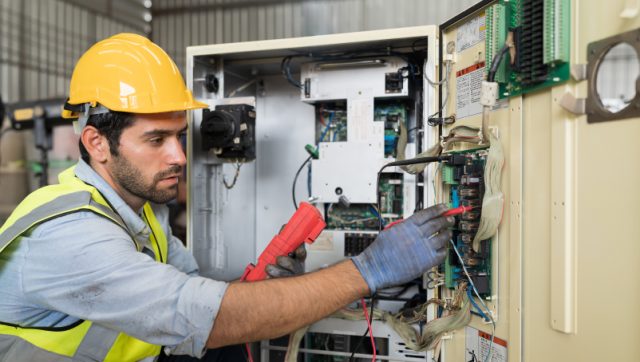For countless aspiring electricians and property developers across Singapore, understanding ema licence renewal requirements represents the difference between legitimate professional practice and potentially dangerous amateur work that puts communities at risk. Behind every electrical component lies a complex web of regulations designed to protect lives, yet navigating this system often feels overwhelming.
Understanding the Human Impact of Electrical Licensing
Singapore’s electrical licensing requirements reveal profound human consequences of electrical work gone wrong. In dense urban environments where families live metres apart, faulty installations can cascade into tragedy, affecting dozens of households. The regulatory framework emerged from real incidents where inadequate electrical work led to preventable fires, injuries, and deaths.
Behind every licensing requirement lies someone’s story of loss or near miss. The Energy Market Authority’s standards reflect institutional memory of what happens when electrical work lacks proper oversight.
The Architecture of Electrical Installation Permissions
Singapore’s electrical installation licensing system operates across multiple levels, each designed to match professional authority with demonstrated capability whilst protecting public safety:
- Residential Installation Permits: Required for all electrical work in homes, including Housing Development Board flats and private residences
- Commercial Installation Authorisations: Covering office buildings, retail spaces, and small business electrical systems
- Industrial Installation Licenses: For manufacturing facilities, warehouses, and heavy industrial electrical infrastructure
- Specialised System Permits: Including solar panel installations, electric vehicle charging stations, and smart building technologies
This graduated approach acknowledges that electrical work exists across a spectrum of complexity and risk, ensuring that each type of installation receives appropriate oversight whilst preventing practitioners from working beyond their demonstrated competencies.
Navigating the Application Process
The journey toward electrical installation licensing reveals challenges faced by professionals seeking legitimate practice in Singapore’s regulated environment. Applicants must demonstrate technical competency plus a comprehensive understanding of regulations, safety protocols, and professional responsibilities.
The application process reflects the Energy Market Authority’s commitment to thorough vetting:
- Documentation Requirements: Project plans, technical specifications, and safety assessments
- Professional Endorsement: Supervision by appropriately licensed electrical workers
- Compliance Verification: Confirmation that proposed work meets relevant standards
- Safety Protocols: Evidence of adequate safety measures and emergency procedures
For many practitioners, these requirements represent significant barriers. Comprehensive documentation, fees, and processing times can delay projects and increase costs, particularly impacting smaller practitioners and property owners.
The Reality of Regulatory Compliance
“Application and renewal of electrical license (EMA Electrical Installation License of 400V, 22kV, 66kV)” represents just the beginning of ongoing compliance obligations that licensed professionals must navigate throughout their careers. The system requires continuous engagement with regulatory authorities, regular renewals, and ongoing professional development that can strain individual practitioners’ resources.
Behind these regulatory requirements lie real people struggling to balance professional aspirations with institutional demands. Small business owners often find themselves overwhelmed by paperwork requirements, whilst individual electricians may discover that maintaining licenses requires time and financial resources that impact their ability to serve clients effectively.
Consumer Protection and Public Safety
The ema licence renewal system serves dual purposes: protecting consumers from unqualified practitioners whilst ensuring that electrical work meets safety standards that protect entire communities. However, the system’s effectiveness depends heavily on public awareness and active consumer participation in verification processes.
Many property owners remain unaware of their responsibilities to verify electrical worker credentials, creating gaps in the safety system that regulatory authorities continue addressing through education initiatives. The Electronic Licence Information Service portal provides tools for verification, yet its effectiveness requires active consumer engagement that doesn’t always materialise.
Economic Dimensions of Professional Licensing
The electrical installation licensing system creates economic dynamics affecting practitioners and consumers. Rigorous standards enhance work quality and safety, potentially reducing long-term maintenance costs. However, comprehensive requirements can increase immediate costs, particularly impacting smaller projects and lower-income households.
These implications reveal questions about accessibility within professional regulation. Whilst safety standards serve essential purposes, they can create barriers limiting electrical service access for those with fewer resources.
Technological Change and Regulatory Adaptation
Singapore’s electrical installation licensing system faces ongoing challenges from rapid technological advancement. Traditional electrical competencies, whilst remaining essential, must expand to encompass emerging technologies, including renewable energy systems, smart home technologies, and electric vehicle infrastructure.
The regulatory response to technological change reveals tensions between maintaining established safety standards and ensuring that professional development keeps pace with innovation:
- Training Programme Updates: Continuous curriculum revision to address new technologies
- Assessment Standard Evolution: Modified evaluation criteria reflecting technological advancement
- Professional Development Requirements: Ongoing education obligations for licensed practitioners
- Regulatory Framework Adaptation: Updated codes and standards addressing emerging technologies
Institutional Challenges and Future Directions
The Energy Market Authority faces pressure to balance comprehensive safety oversight with practical accessibility. The administrative burden of maintaining licensing records, conducting assessments, and adapting to technological change requires substantial institutional capacity that may become difficult to sustain.
The electrical installation licensing system will require ongoing refinement whilst maintaining safety commitments. Artificial intelligence, Internet of Things technologies, and advanced energy management systems will necessitate new competency categories and corresponding licensing mechanisms.
Building Professional Communities
Beyond individual licensing requirements, Singapore’s electrical installation system fosters professional communities that share knowledge, maintain standards, and support emerging practitioners. These networks provide informal mentorship and guidance that complement formal regulatory oversight, creating support systems that help individuals navigate complex professional requirements.
The human dimension of professional licensing extends beyond individual compliance into collective professional identity and mutual support. Understanding this community aspect can help aspiring electrical workers find resources and guidance that ease their journey through the licensing process.
Singapore’s approach to electrical installation oversight demonstrates how comprehensive professional regulation can effectively serve public safety goals whilst supporting individual career development. The system’s success depends not merely on regulatory framework design, but on sustained institutional commitment to helping professionals navigate complex requirements whilst maintaining the highest standards of ema licence renewal compliance that protect both practitioners and the communities they serve.









